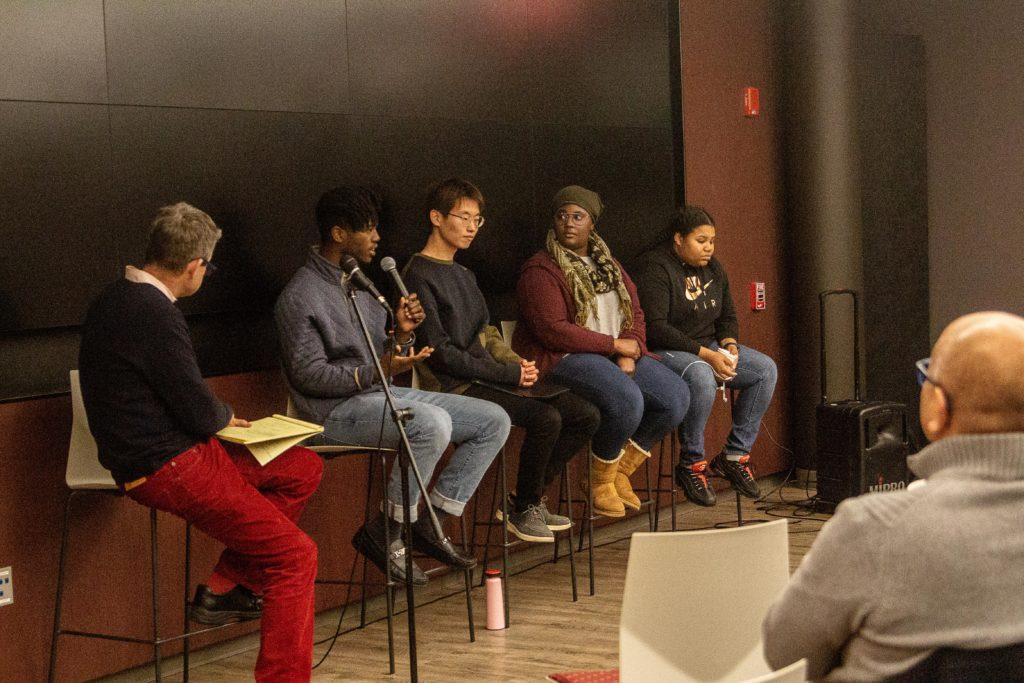By Shabana Gupta
guptasha@grinnell.edu
Students of color who go abroad may run into situations they never expected. Some areas around the world have social structures that place students of color in uncomfortable situations when it comes to the use of slurs or other derogatory language and actions.
In order to prepare students for these situations, the Institute of Global Engagement (IGE) held an event last Wednesday with a panel of fourth-year students who talked about what might happen and what students can do to minimize how the situations affect them.
Langston Thomas ’20 works at IGE as a Global Envoy. Global Envoys are students who meet with students and hold educational events about studying and traveling abroad.

Last year, he went abroad and encountered some more difficult environments.
He felt entirely unprepared for the instances and was disappointed that the only other Grinnellian in his program did not pay attention to the difficulties he was experiencing.
“When they got there, it was like everything that we talk about at Grinnell just went out of the window,” he said. “Having them there was honestly more of a cause of stress and tension than it was a release.”
Thomas pushed for the panel discussion to happen because he thinks students need to take their different identities into consideration when choosing where they go.
“Grinnell hasn’t really prepared students beforehand to really think about these sorts of issues, and so a lot of students are sort of caught off guard and left in a sort of isolating experience that for some students destroys their entire abroad experience,” he said.
He also wants to make sure white students are aware of the difficulties their fellow students may face so that they can become allies.
He said, “Knowing what your peers are going through and being an ally to help them process and deal, and even standing up for them in situations, is something that you should want to do.”
There are things students can do before they go abroad to help ensure that their experience will be enjoyable. Thomas suggests setting up times to call family and friends each week to make sure they have continuous support and people to talk to. He also advises that if a host family says inappropriate things, it is best for the student to try switching host families—trying to stick with the same family for the entire semester could ruin a student’s experience abroad.
Kate Patch, senior director of global initiatives for IGE, wants to help students coming back from abroad with programs that allow students to debrief about the things they experienced while studying off-campus and to identify the different barriers that they faced.
“We launched Grinnell’s first ever post-OCS program evaluation and are in year two of collecting and analyzing data about students’ experiences,” she said.
The IGE hopes this information can help students inform their choices, and they wanted students to know that this panel is meant to inform students about any difficulties they may face abroad.
“The goal is not to dissuade students from going, but to be transparent about the feedback we received from other students regarding certain programs,” Patch said.
Annie Kratz ’22 went abroad while in high school and was not fully prepared to deal with the different cultural expectations of another country.
“My host parents were understanding and accepting, but they didn’t really vibe well with the gender neutrality thing,” Kratz said.
If that happened now, they said, “I would hit up Alicia Stanley or whoever the professor is who is the liaison.”



































































